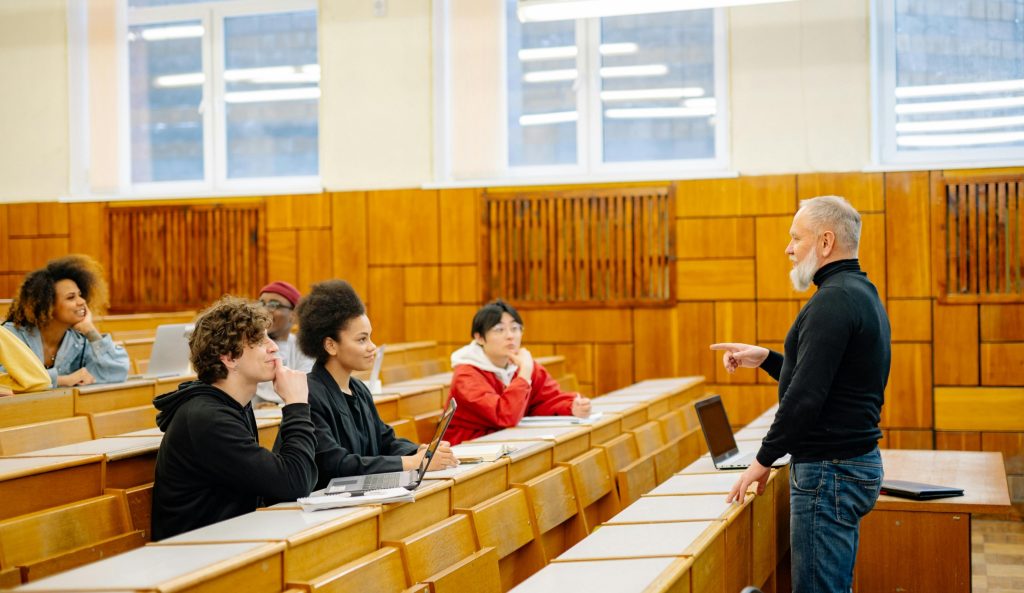


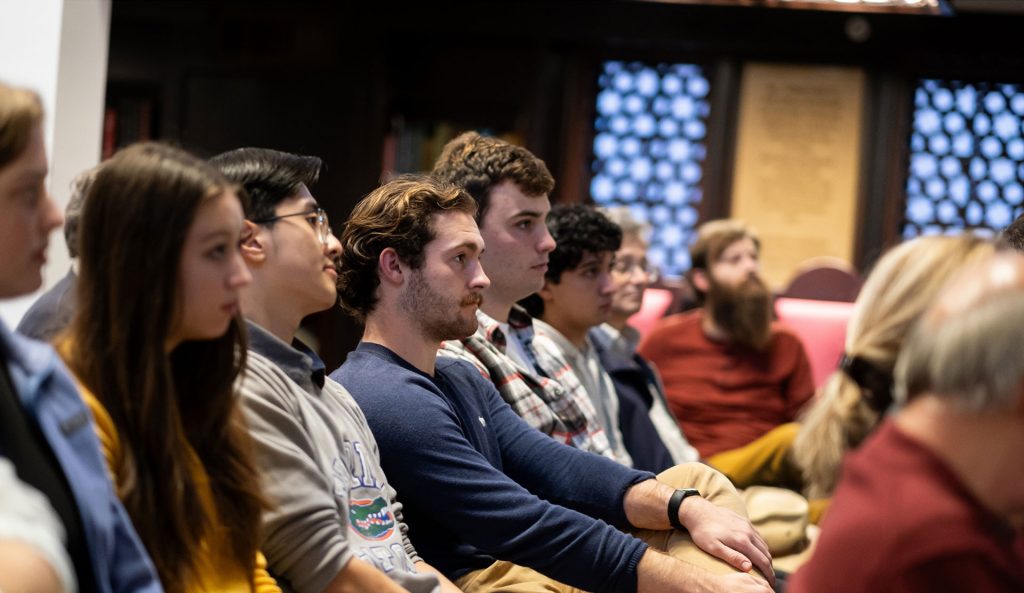

These three required courses provide the intellectual foundation of the interdisciplinary PPEL
major.
1. ISS 2105: Origins of the Contemporary West : I (Ancients to the Scientific Revolution)
2. ISS 2106: Origins of the Contemporary West: II (Enlightenment to Modernity)
3. AMS 2010: Civil Discourse and the American Political Order

These four required courses provide the methodological foundations for the interdisciplinary study
of PPEL.

Four courses in the Historical and Theoretical Perspectives sequence provide students with historical and theoretical perspectives on issues and topics germane to the interdisciplinary study of PPEL. Students are required to take the Introduction to PPEL and History of Political Economy; they must also select two other 3000-level courses within the Historical and Theoretical Perspective sequence.
1. ISS 2440: Introduction to PPEL [required]
2. ISS 2122: History of Political Economy [required]
3. ISS 3442: Human Flourishing: PPEL Perspectives
4. ISS 3441: Liberty and Order: PPEL Perspectives
5. ISS 3444: Major Figures in PPEL
a. Variable topics will include Max Weber, Adam Smith, David Hume, and others to be developed by center faculty.
b. Prerequisite: ISS 2440: Introduction to PPEL or ISS 2122: History of Political Economy
6. ISS 3990: Special Topics in PPEL
a. Variable topics will include Religious Liberty, Conservatism & Liberalism, and others to be developed by center faculty.
b. Prerequisite: ISS 2440: Introduction to PPEL and ISS 2122: History of Political Economy

Two capstone courses allow students to apply the content, knowledge and historical and
theoretical perspectives they have learned in the major to real-world problems. Students must
take the PPEL Research Seminar and either Big Problems: PPEL Case Studies or PPEL
Internship.
1. ISS 4910: PPEL Research Seminar [required]
a. Prerequisite: ISS 2440: Introduction to PPEL + ISS 2122: History of Political Economy + 1 3000-level ISS course in the Historical and Theoretical Perspective sequence + senior standing
2. ISS 4940: PPEL Internship
3. ISS 4931: Big Problems: PPEL Case Studies
a. Variable topics will include Political Polarization, Global Justice, and others to be developed by center faculty.
b. Prerequisite: ISS 2440: Introduction to PPEL + ISS 2122: History of Political Economy + 1 3000-level ISS course in the Historical and Theoretical Perspective sequence

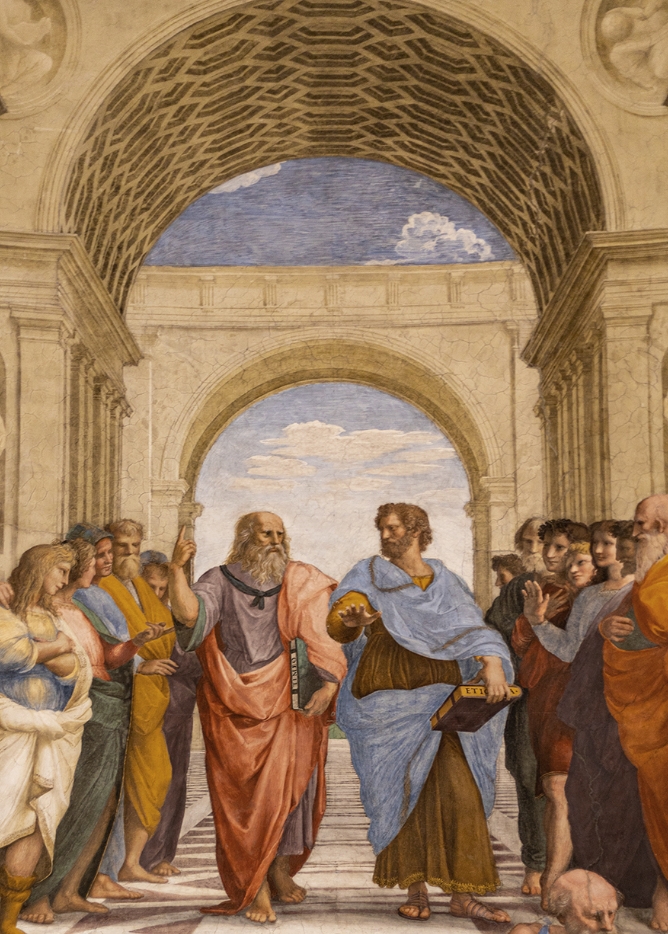
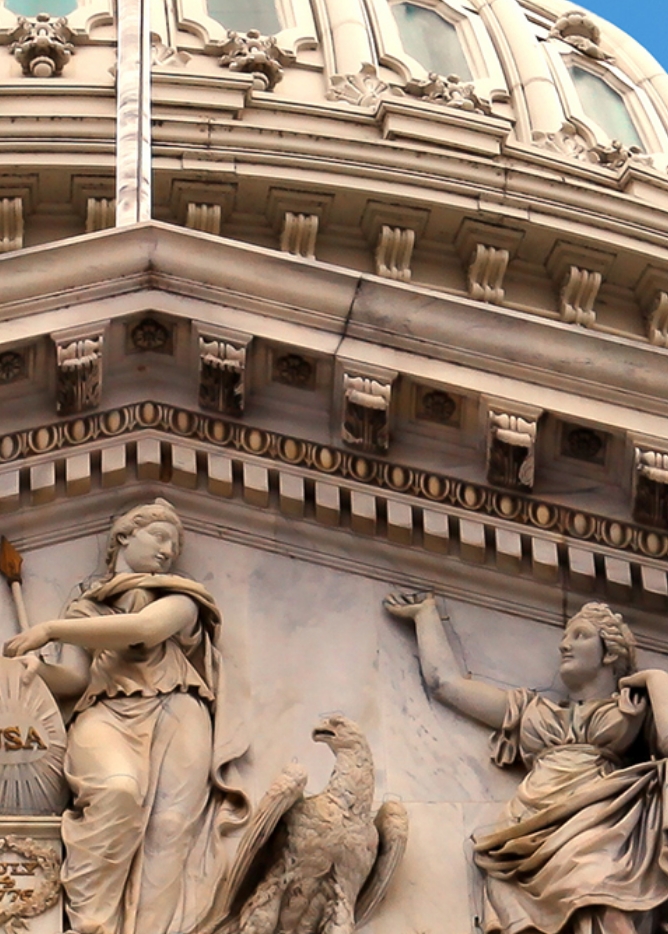
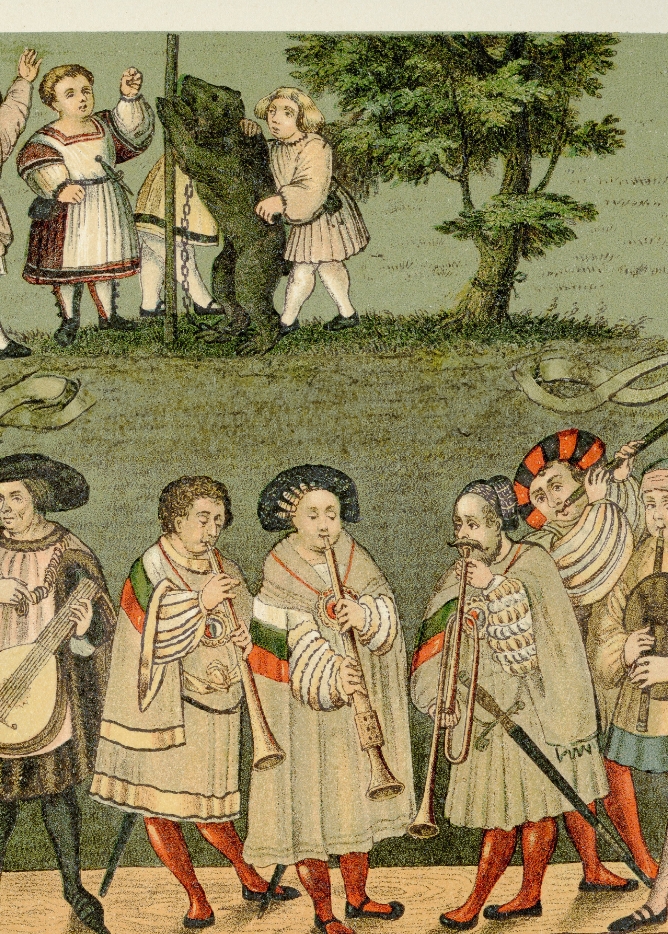


Corporate Lawyer
Nonprofit & Religious Organizations Lawyer
Human Rights Advocate
Environmental Lawyer

Teaching
Research
Admissions Counselor
Financial Aid
Administrator
Policy Researcher
International Specialist

Politician
Legislative Analyst
Lobbyist
Public Administration
Political Consultant
Campaign Manager
Diplomat

Market Research Analyst
Brand Manager
Digital Marketing Strategist
Public Relations Specialist

Entrepreneur/Startup Founder
Chief Financial Officer (CFO)
Chief Operating Officer (COO)
Management Consultant
PPEL stands for Philosophy, Politics, Economics and Law. Inspired by the iconic curriculum pioneered by Oxford University, this multidisciplinary Bachelor of Arts program ranges from the classic texts of the Western tradition to the modern analytic and quantitative skills that equip students for professional success in the twenty-first century. Students enrolling in the PPEL curriculum will learn to read, write, and think critically while being steeped in the great ideas, thinkers, and debates of the past and present. The program will offer both a major and minor.
Great Books and Ideas (GBI) is a multidisciplinary Bachelor of Arts program at the Hamilton School. It focuses on exploring seminal texts and fundamental ideas that have shaped Western civilization, preparing students for critical analysis, rigorous debate and effective communication. GBI’s multidisciplinary classes will deal with history, politics, philosophy, art, literature, classics and more. This program will offer both a major and a minor.
PPEL prepares students to address the biggest challenges facing governments, businesses, and communities around the world today. These problems are not only political, or economic, or legal; they are multi-faceted, with intersecting moral, political, economic, and legal considerations. To understand these problems, students’ training must go beyond the boundaries of any single traditional academic discipline. Through the coursework in the PPEL program, students will acquire foundational analytical and quantitative skills; they will learn to analyze problems holistically by integrating multiple disciplinary perspectives; and they will learn to apply their new skills and knowledge to real world problems through case studies and a capstone senior research project.
Great Books & Ideas (GBI) allows students interested in the humanities to confront the deepest questions about human existence through a multidisciplinary program. It is premised on the idea that ‘all branches of knowledge are connected together’ and it offers students the chance to get to know ‘the best which has been said and thought in the world’. GBI majors will learn through discussion-based seminars focused on the great books which have stood the test of time. Along the way students will develop the ability to write and speak clearly, cleanly and persuasively.
The curriculum includes:
Throughout your degree:
At graduation you can expect:
Graduates with a degree in PPEL often pursue careers in
Graduates with a degree in Great Books and Ideas are well-prepared for careers in:
To apply to the Hamilton School programs, you must first be admitted to the University of Florida. Visit the University of Florida admissions website and complete the online application for next steps.
The low student-to-faculty ratio at the Hamilton School ensures personalized attention and mentorship opportunities, fostering a supportive academic environment conducive to intellectual growth and development.
For more information about the Hamilton School curriculum, programs, admission process, and student life, contact our academic advisors to schedule an informational meeting.